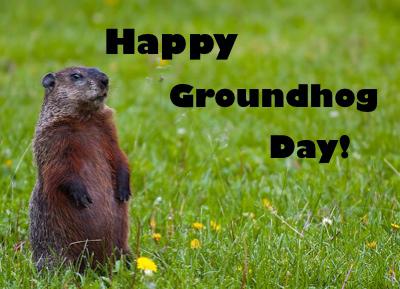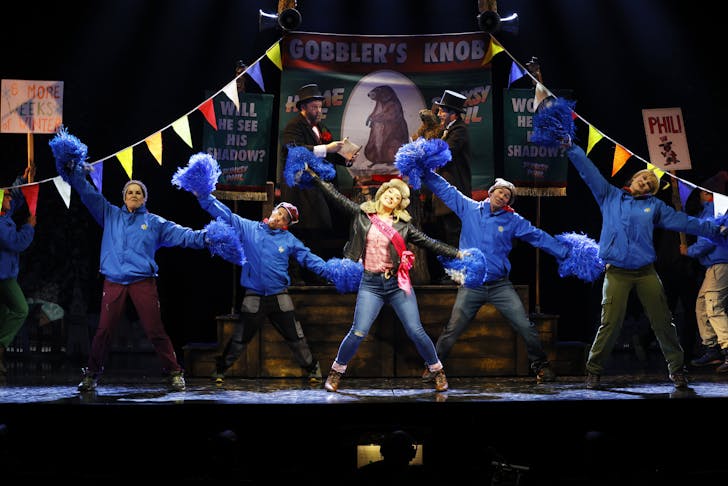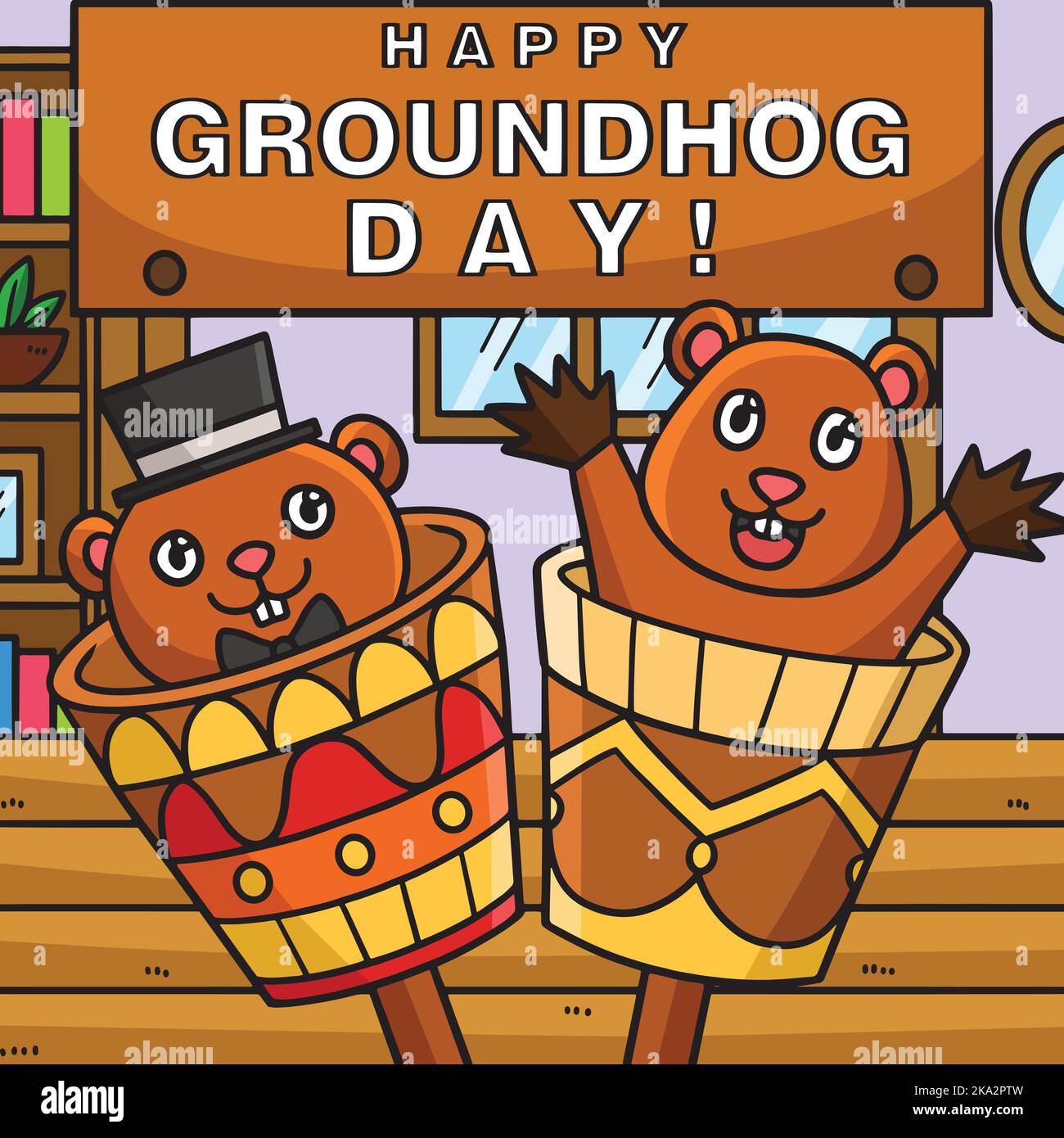Gallery
Photos from events, contest for the best costume, videos from master classes.
 |  |
 |  |
 |  |
 |  |
 |  |
 |  |
E very year on February 2, crowds gather at Gobbler’s Knob in Punxsutawney, Pennsylvania, to watch a groundhog emerge for the day—just like in the classic Bill Murray film Groundhog Day. You See how the groundhog became a symbol for predicting seasonal changes in America, rooted in German folklore with a badger — which in turn lead to Groundhog Day. But the groundhog was important to many native nations that lived on these lands for centuries before the arrival of peoples from the Old World. And so, on this Groundhog Day and on the ones The observance of Groundhog Day in the United States first occurred in German communities in Pennsylvania, according to known records. The earliest mention of Groundhog Day is an entry on February 2, 1840, in the diary of James L. Morris of Morgantown, in Pennsylvania Dutch Country, according to the book on the subject by Don Yoder. This was a He has a theory for why Groundhog Day became, and remains, so popular in the U.S. "Throughout history, whenever there has been a real strong emphasis on science, its counterpart of intuition The first official Groundhog Day celebration took place on February 2, 1887, in Punxsutawney, Pennsylvania. The annual ritual has roots in pre-Christian traditions and was brought to the U.S. by This quirky tradition, known as Groundhog Day, has captured the hearts and imaginations of generations. But where did this unusual custom come from, and why has it endured for so long? In this article, we‘ll delve into the rich history of Groundhog Day, exploring its ancient roots, early celebrations, and modern-day significance. The History of Groundhog Day. The Christian religious holiday of Candlemas Day has become most commonly associated with the current celebration, but it’s roots are older than that. The celebration started in Christianity as the day, (February 2nd), when Christians would take their candles to the church to have them blessed. An unusual, yet beloved holiday February 2nd is Groundhog Day, the day when a groundhog named Punxsutawney Phil predicts whether or not we will have six more weeks of winter. If he sees his shadow, more cold is on the way; if not, warmer weather is coming. While this holiday may seem like a silly tradition, it has a surprisingly deep history. Ancient Traditions And what does February 2nd have to do with it? But Groundhog Day actually has deep roots in a much older Christian tradition. Furthermore, the day that we celebrate Groundhog's Day has some real meteorological significance, designating the halfway point between two important markers in the changing of the seasons (via EarthSky.) He has a theory for why Groundhog Day became, and remains, so popular in the U.S. "Throughout history, whenever there has been a real strong emphasis on science, its counterpart of intuition, instinct, emotion, imagination — the right side of our brain — pushes back a little bit," Harman says, explaining that Groundhog Day took off right Relationships Why We Need Groundhog Day Personal Perspective: Reasons to love this annual ritual. Posted January 27, 2025 | Reviewed by Michelle Quirk A popular event in the US, Groundhog Day is a tradition that spans centuries, cultures, and even continents. Its origins are mysterious, associated with ancient times and the awakening of animals after their winterlong sleep. On this day, the groundhog wakes from its hibernation, comes out of its den, and people await its forecast of an early spring or a longer winter. So, we had to ask: What With January now concluding, and February coming soon, so does the yearly Groundhog Day holiday. However, the idea that a groundhog predicting the weather can seem bizarre, but perhaps the answer to this event can be found in its 134-year history. As stated, Groundhog Day has been a holiday in America for over a century, So, you go, Phil! See your shadow, don’t see your shadow and we will still gather every year to watch Bill Murray in the masterful movie tribute to your life’s work—where he has to live the same day over and over again until he learns an important lesson. Which we all have to do. It’s official! He has a theory for why Groundhog Day became, and remains, so popular in the U.S. "Throughout history, whenever there has been a real strong emphasis on science, its counterpart of intuition On a lighter note, people the world over also have one more reason to watch Harold Ramis' 1993 masterpiece Groundhog Day. The "holiday" of Groundhog Day isn't really a holiday, it's just an observance, and, to add insult to injury, technically shouldn't even be called "Groundhog" Day; the tradition dates back to early settlers from what is now He has a theory for why Groundhog Day became, and remains, so popular in the U.S. "Throughout history, whenever there has been a real strong emphasis on science, its counterpart of intuition, instinct, emotion, imagination — the right side of our brain — pushes back a little bit," Harman says, explaining that Groundhog Day took off right In the rare cases, groundhog burrows can even undermine the foundation of buildings. Groundhogs' pesky habits often overshadow the benefits they provide to both the ecosystem and humans—even farmers and gardeners. So, in celebration of Groundhog Day, let’s explore the ways in which groundhogs help make our world a better place. I have never thought much about Groundhog Day until a few days ago. On February 2nd as it snowed outside my apartment window, I decided to watch the classic 90’s film Groundhog Day featuring the one-and-only Bill Murray. It was a wake up call, like being slapped in the face with a large, cold fish.
Articles and news, personal stories, interviews with experts.
Photos from events, contest for the best costume, videos from master classes.
 |  |
 |  |
 |  |
 |  |
 |  |
 |  |